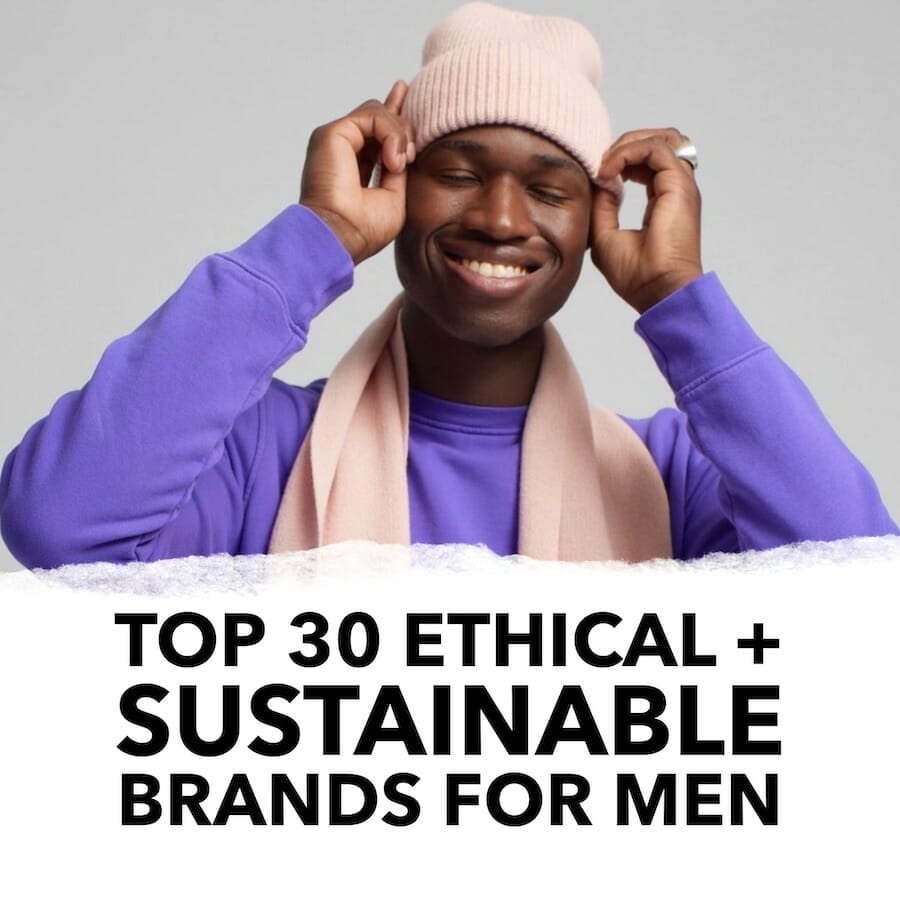
Eco-Stylist is reader-supported. If you make a purchase using our links, we may earn a commission. We only feature fashion brands that pass our sustainable brand criteria. Learn more here.
Ethical consumption has gained significant attention due to the pressing consequences of the climate crisis and social inequalities. Leather, in particular, often carries a negative reputation regarding its ethical and sustainable qualities, which has led to a rising consumer demand for more sustainable and ethical leather goods.
Despite ethical challenges, numerous ethical shoe brands are adopting socially and environmentally responsible practices in their production of leather footwear to provide great sustainable options.
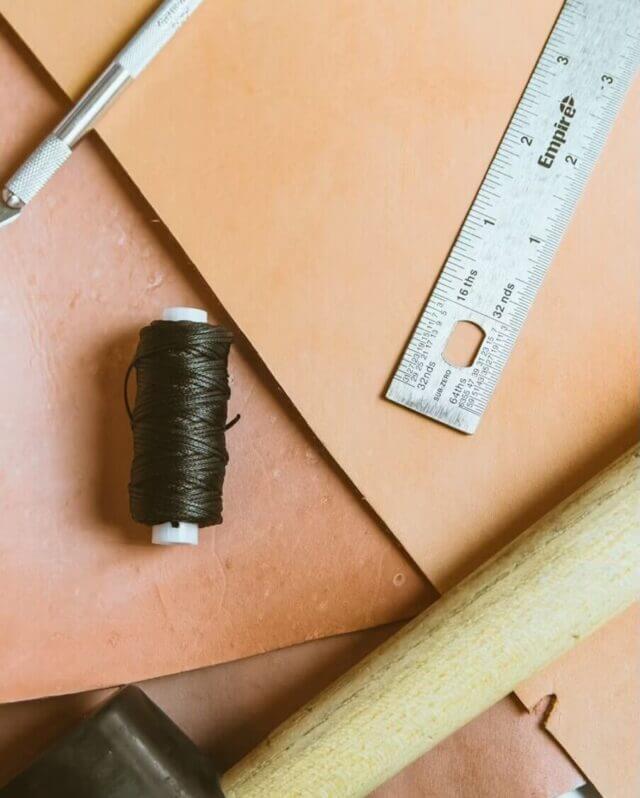
What Makes Leather Shoes Ethically Made?
As leather has evolved from being a by-product of animal farming to a sought-after commodity in a growing global market, the industry has encountered increasing ethical and sustainable concerns.
To be truly ethical, leather production must consider the welfare of the workers within the industry, as well as the families and communities impacted by its production and manufacturing, whether those impacts are positive or negative. Equally important is the welfare of the animals, primarily cows, used to produce the leather. This encompasses animals’ living conditions, the amount they are fed, and when and how they are slaughtered.
While ethical leather is a subjective debate as to whether or not the act of using animals for the production of shoes can ever be ethical, there are a range of companies who are doing their bit to make this industry as ethical as possible.
Regarding those involved in leather production, ensuring fair living wages is a crucial step towards a more ethical future, for leather shoes but also for sustainable clothing and the entirety of the fashion industry. Transparency from businesses and manufacturers is essential to verify that workers are compensated fairly and are paid living wages, enabling them to afford the cost of living in their respective regions.
Jobs in the leather industry should support livelihoods, covering necessities such as food, healthcare, housing, and family needs. Continuous monitoring of employees’ living standards is necessary to maintain fair wages, particularly during a global cost of living crisis.
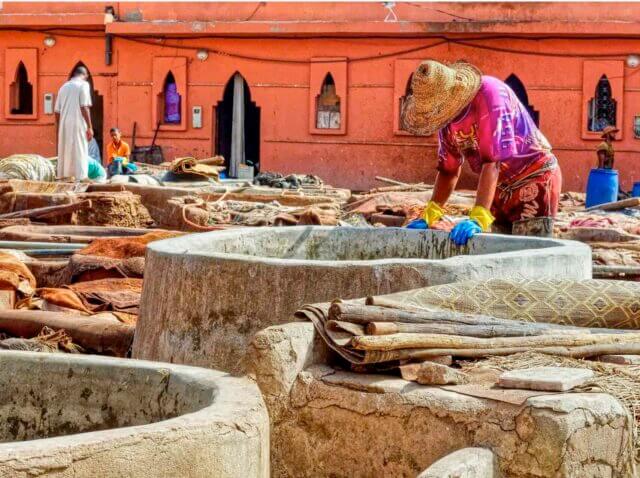
How Can Leather Be Sourced Responsibly For Sustainable Shoe Brands
In terms of sustainability, leather production needs to address its pollutant characteristics. The process of tanning uses harmful chemicals, with around 90% of leather produced using chromium tanning, which produces chemicals severely toxic to work with. When dumped as wastewater these chemicals can cause environmental damage to aquatic ecosystems, animals’ drinking water, and human water sources, exacerbating the risk of disease and environmental degradation.
To combat this there needs to be a high level of transparency and regulation when it comes to production processes, enabling consumers and governments to be aware of businesses’ tanning methods and the whole supply chain as a way of encouraging more sustainable practices.
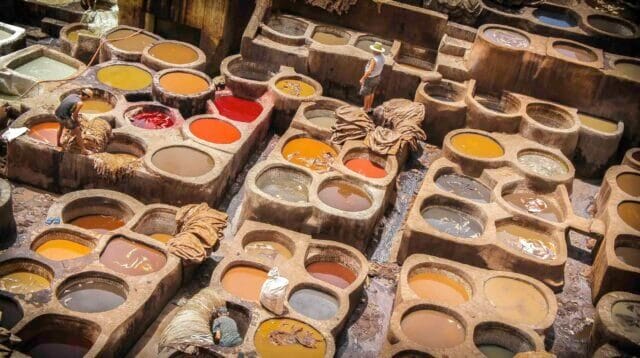
Another issue the leather industry encounters is its extensive land use for cattle farming, and while this is driven by the meat industry, brands need to acknowledge the role that the leather industry contributes to this. High land use levels for cattle lead to a mono-cultural environment, reducing biodiversity and the stability of the surrounding ecosystem, while also requiring large amounts of deforestation to provide the land for cattle to graze and that’s not to mention the vast methane emissions from cows.
To source leather more sustainably brands can affiliate themselves with leather suppliers that have obtained Leather Working Group certifications (LWG). They employ written standards throughout leather supply chains, including water, chemical, and waste management and emissions, to encourage the use of responsibly made leather and incorporate more eco-friendly materials that are responsibly sourced, in more transparent ways aligned with the UN’s Sustainable Development Goals.

Another, more sustainable way of sourcing leather is through regenerative agricultural techniques. This involves restoring soil and farmland that support the leather industry. By restoring soil quality, nature is better able to sequester carbon from the atmosphere, contributed to by methane-emitting cows, while also improving the biodiversity of cattle farms and the surrounding environment resulting in net-positive climate outcomes. However, it is crucial to note that the positive effect of this process may be limited and outweighed by the vast scale of carbon emissions generated from cattle. Furthermore, none of this makes the fashion system any more sustainable unless suppliers and businesses have proven to implement strategies like regenerative farming.
How Can We Be More Eco-Friendly With Our Consumer Choices
As consumers our best tool is education, educating ourselves and others on both unsustainable and unethical fashion brands and practices, so we are well aware of where to steer clear of. Having a better awareness of where our garments are coming from and brands that use sustainable and ethical practices will help inform us to make better choices and prioritize the planet and its people.
4 Best Sustainable Brands for Ethically Made Leather Shoes
As with all garments, they become more sustainable the more durable they are and thus the longer you own them, even more so with good repair and recycling schemes on offer. While leather is quite a controversial material it can be seen as more sustainable due to its naturally durable, long-lasting qualities.
However, this doesn’t mean to say we shouldn’t be doing our bit to help out. Owning a pair of shoes for a long time and getting them repaired doesn’t guarantee that they were manufactured ethically in the first place. We, as consumers, need to take that next step and shop with brands that are ethical, produce products made from sustainable materials, and are transparent about their manufacturing processes so we as consumers can make more informed and responsible choices.
The following ethical shoe brands produce ethical footwear in a variety of ways, from the use of regenerative leather to fair living wages to using more eco-friendly materials, and are brands that give back to the environment and society, all certified under our ethical brand guide rating.
1) Nisolo

The sustainable shoe brand Nisolo offers men’s and women’s footwear predominantly catered to the warmer seasons with a wide range of sandals, loafers, boots, heels, and trainers, alongside accessories like wallets, belts, and bags. They also offer leather care kits to extend the lifecycle of your leather purchases, with the option to donate your old shoes as part of the ‘soles4souls’ to limit shoes ending up in landfills and giving to communities in need.
Their core values are centered around 100% living wages and 0% net carbon ethos, addressing both environmental and social sustainability and ethics, proven by their Top Rated Certified B corporation status, providing LWG-certified products that are carbon neutral certified. What more could you want?
As part of their sustainable approach, Nisolo are conscious of the unavoidable environmental impact of production and consumption, especially when leather is involved. To combat this they go out of their way to try and offset their environmental footprint by investing in different forest conservation initiatives involved in forest regeneration against deforestation.
The brand considers environmental issues throughout the lifecycle of a product, from the use of raw materials to packaging to post-use, offsetting 100% of their carbon emissions through conservation work in the Peruvian Amazon.
As for people, Nisolo ensures they pay their workers 100% living wages, tracking these wages and increasing them when necessary in line with global markets and the cost of living crisis. For Nisolo, it’s about more than just wages, they ensure their people have the best health and safety measures, worker’s rights, gender equality, healthcare benefits, and racial justice. By shopping for sustainable shoes from Nisolo you aren’t just striving for environmental sustainability, but are making a commitment to ethical and social equality too.
The company also produces sustainability labels, as you would find nutrient information on food, Nisolo rightly believes transparency to be key to ethical and sustainable practices and so has produced a label to address a product’s impact on people and the planet, helping you the consumer to make more education decision when purchasing leather shoes, but also to help you think about your consumption habits of clothing in general.
You can find out more about Nisolo’s vast sustainability and ethical efforts here.
2) Adelante Made-To-Order

Adelante is a sustainable brand providing leather shoes, boots, and sandals for men and women each with a unique story to tell. All shoes are made to order in their Guatemalan workshop and can be ordered with a range of eco-friendly shoe care products to help customers sustainably maintain their shoes. They ensure fair wages and working conditions, working out of workshops, not factories hooked on mass production.
All shoes are handcrafted and therefore unique, mixing traditional practices with modern styles. They place a great emphasis on transparency limiting the size of their supply chain so that all practices can be ensured to be sustainable and ethical. Adelante’s commitment to sustainability goes beyond just their products. They prioritize using local materials and suppliers to reduce their ecological footprint and support the local economy.
Adelante offers ethical tanning methods and sources its leather from an eco-friendly farm that uses solar energy to reduce the environmental impacts of global warming alongside reduced water usage to reduce the potential risk of water scarcity and levels of potentially harmful wastewater that could negatively impact surrounding ecosystems.
Their commitment to sustainability doesn’t stop there, they also ensure fair labor practices and pay fair wages to their artisans who handcraft each piece with care and attention to detail. This ensures that each product is not only beautiful and high-quality but also made with a conscience towards both people and the planet.
In addition to their ethical practices, they also offer a personalized touch for their customers by allowing them to customize their designs and choose their own colors and finishes. This not only creates a unique and special piece for each customer but also reduces waste by only producing what is truly wanted and needed.
Overall, Adelante is leading the way in sustainable fashion, proving that it is possible to create high-quality, durable, stylish footwear while still prioritizing ethical and environmentally friendly practices. Their dedication to transparency and social responsibility sets them apart in the fashion industry and sets a positive example for other brands to follow.
You can find out more about Adelante’s ethical practices and products here.
3) Koio

Koio, another sustainable shoe brand, provides handcrafted sustainable leather sneakers made in Italy using traditional Italian craftsmanship and regenerative leather from the Swiss Alps. They prioritize quality materials that go through a meticulous inspection process to ensure shoes are made to their best most durable quality by skilled labor.
Koio takes a unique stance on sustainability focusing on regenerative farming, on the basis that the earth needs restoring not sustaining as it’s already in a state of climate despair. They state that if the world were to switch to regenerative farming then 18 billion tonnes of carbon could be sequestered into the soil annually, majorly reducing carbon emissions and improving soil quality for ecosystem survival and biodiversity by transitioning to a circular fashion system.
In practice Koio produces all their shoes locally in a Florence-based workshop, using leathers, suede, and recycled materials that have all been sourced locally. Having a close relationship with their manufacturer enables Koio to monitor the quality of working conditions for their workers.
Their regenerative leather shoes are 99% biodegradable, it seems like a no-brainer right?
Koio traces their sustainable materials right down to the cows and lands they graze on, and by using regenerative leather in some of their shoes, Koio is committed to minimizing their environmental impact and promoting products made from sustainable and ethical techniques and materials.
Check out our brand rating for Koio to learn more about their ethical business and products.
4) Beckett Simonon
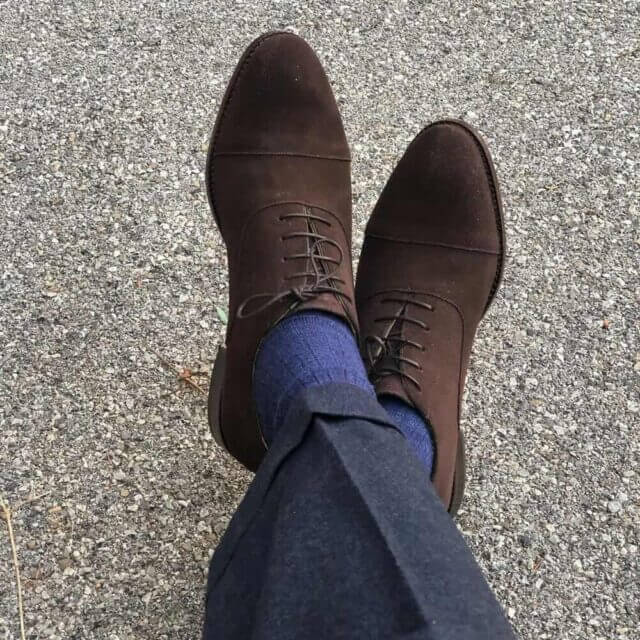
Beckett Simonon provides sophisticated hand-crafted shoes for men and women, including leather shoes, boots, and sneakers, with a wide range of styles available. The leather they source ethically is Leather Working Group Gold Certified from an Italian tannery and while they acknowledge the controversial practice of working with leather Beckett Simonon remains positive and open to new forms of ethical production and sustainable materials.
The company prioritizes craftsmanship and quality, and therefore a focus on the people producing their shoes. Their commitment to ethical labor practices to produce ethically made shoes is a priority. Known for partnering with skilled artisans in South America who receive fair wages working in fair conditions their business focuses on transparent operations.
Beckett Simonon prioritizes their workers with part of their belief system being that staff are going to produce better quality products if they are well rested, happy, and healthy, deserving all credit for the products they produce as part of their ethical manufacturing.
By producing shoes made to order, Beckett Simonon aims to provide their customers with high-quality, timeless products that are environmentally produced and ethically responsible. This process reduces the environmentally damaging effect of overproduction and subsequent deposits of shoes in landfill, enabling them to produce shoes more focused on quality to ‘last for years not seasons’.
Learn more about Beckett Simonon’s sustainability here.
Looking for Vegan Leather Ethically Made Shoes?
While these brands we have discussed offer more ethical leather shoes, you may be looking for shoes free from animal derived materials, such as vegan leather. Here are two shoe brands selling vegan leather that are worth checking out:
1) Koio
Koio offers a vegan shoe with multiple color variations for both men and women, called Pale Blue Dot. You can shop Pale Blue dot here.
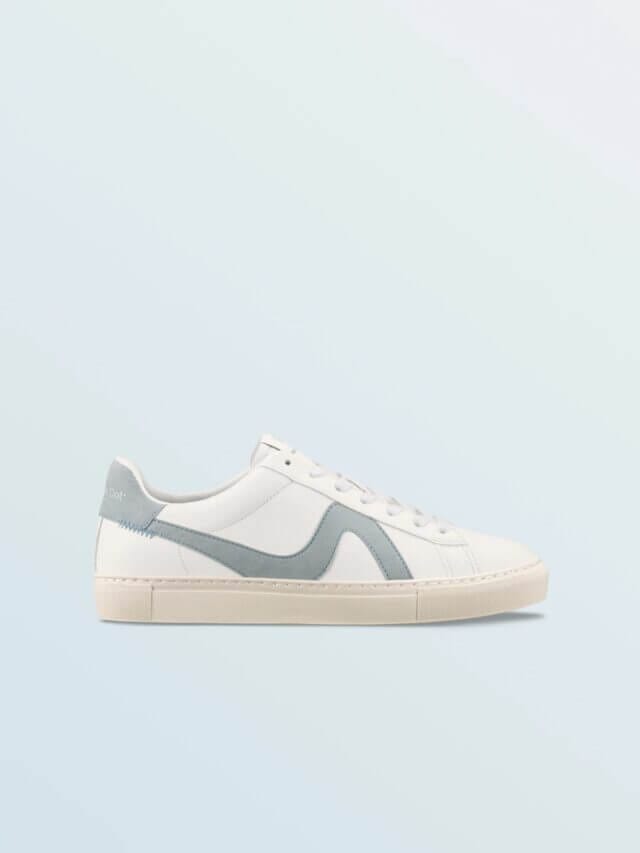
2) Thousand Fell
Thousand Fell’s brand is centered around vegan leather shoes that still give the aesthetic of leather but while also ensuring no use of materials derived from animals. They also make fully circular shoes meaning you can send them back to be recycled after they wear out.
You can shop their wide range of shoes here.
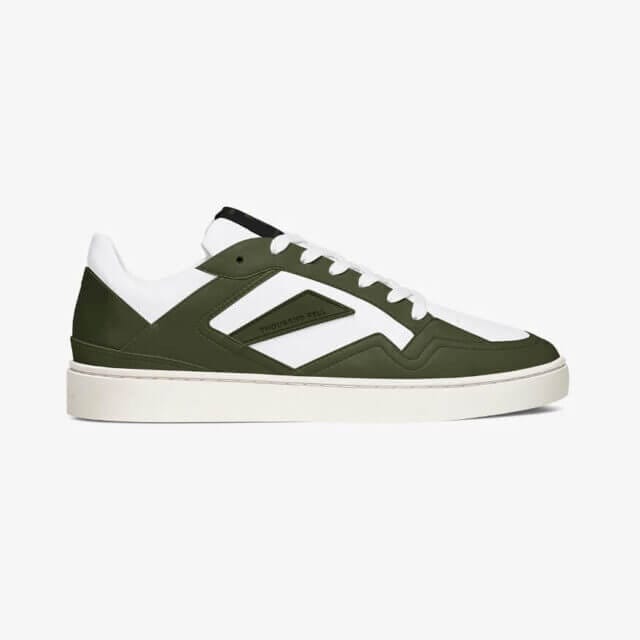
*Image at the top of the page: Adelante Made-To-Order
**Featured image: Nisolo shoes

Grace is graduating from the University of Sheffield this summer after studying Geography. She loves all things sustainability and fashion, spending her time making and up-cycling clothes. She also has a new found love for writing and a passion to help make positive change in the world.







